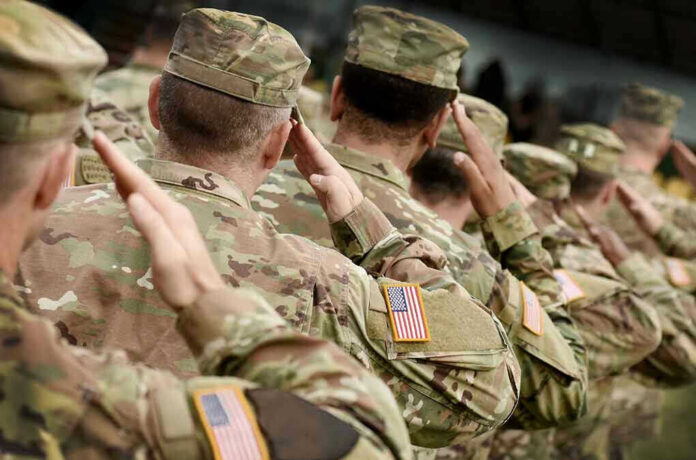
Federal deployment of U.S. troops to American cities without a clear external threat has ignited nationwide controversy, raising alarms about constitutional limits and the politicization of the military.
Story Snapshot
- Major polls show most Americans oppose domestic troop deployments absent an external threat.
- President Trump’s use of National Guard and active-duty troops faces bipartisan legal challenges and public scrutiny.
- Legal battles highlight federal vs. state authority and the historic norm of military neutrality in civil society.
- Military’s expanded domestic presence risks undermining public trust and sets precedents for future deployments.
Public Opinion Rejects Routine Domestic Troop Deployments
Polls released in October 2025 by respected organizations like Reuters/Ipsos, Quinnipiac, and YouGov confirm that a clear majority of Americans, regardless of party affiliation, want the U.S. military focused on external threats, not on policing American streets. This widespread opposition directly responds to President Trump’s deployment of federalized National Guard and active-duty troops in cities including Los Angeles, Chicago, Portland, and Washington D.C. The message is consistent: 58% of Americans reject domestic troop deployments unless there is a defined external threat, while 83% demand the military remain politically neutral.
The surge in domestic deployments has intensified public discomfort with the politicization of the armed forces. Americans value the tradition of military neutrality, rooted in the Posse Comitatus Act of 1878, which restricts the military from internal law enforcement except under specific circumstances like the Insurrection Act. Historically, National Guard units have been called upon for natural disasters and true insurrections, but rarely have they been sent into cities over the objections of local and state leaders. The current situation marks an unprecedented expansion of federal authority and a test of constitutional boundaries.
Legal and Constitutional Battles Underscore Deep Divisions
Federal versus state authority has come into sharp focus as governors from Illinois, Oregon, and other states file lawsuits to block the federalization and deployment of their National Guard units. City mayors echo these concerns, citing threats to local autonomy and public safety. The federal judiciary has become a key arbiter, with recent decisions in Oregon delaying troop deployments pending further review. President Trump, citing his powers under the Insurrection Act, has remained unapologetic, asserting the need for forceful action amid rising crime and unrest. The Department of Defense, led by Secretary Pete Hegseth, has convened top military brass to discuss the “war from within,” sparking debate about using American cities as training grounds for troops.
The legal uncertainty created by these actions has wide-ranging implications, both immediate and long-term. Federal judicial intervention continues to shape the scope and limits of executive authority, with outcomes likely to set precedents for future administrations. Meanwhile, public protests and mounting legal costs reflect a society deeply divided over the proper role of the military in civil life. The risk of undermining trust in the military—historically viewed as a nonpartisan institution—remains a central concern for both lawmakers and everyday Americans.
Long-Term Risks to Military Neutrality and Civil Liberties
The expanded domestic role of the military raises serious concerns about the erosion of democratic norms and the risk of setting dangerous precedents. Military analysts warn that regular troop deployments for internal security could damage morale and public trust. Legal scholars debate the reach of the Insurrection Act, questioning whether aggressive federal intervention aligns with constitutional principles of limited government and individual liberty. Political scientists caution that routine domestic use of troops undermines civil-military relations and threatens the tradition of military restraint.
Recent events have affected communities in cities like Chicago, Portland, and D.C., where residents, local officials, and military personnel alike face the consequences of federal intervention. Economic and social impacts include strained state-federal relationships, legal expenses, and heightened political polarization. As the public debate intensifies, most Americans—regardless of party—continue to call for the military to remain focused on defending the nation from external threats, not enforcing political agendas at home.
Despite some conservative support for strong executive action, the consensus among legal and military experts remains clear: the politicization of the armed forces should be avoided, and constitutional safeguards must be respected. The coming months will likely bring further legal challenges, congressional hearings, and potentially new legislation aimed at clarifying or restricting presidential powers over domestic troop deployments.
Sources:
Poll: Most Americans oppose deploying National Guard to cities
Quinnipiac University Poll Release
YouGov: Daily Survey Results, October 8, 2025















